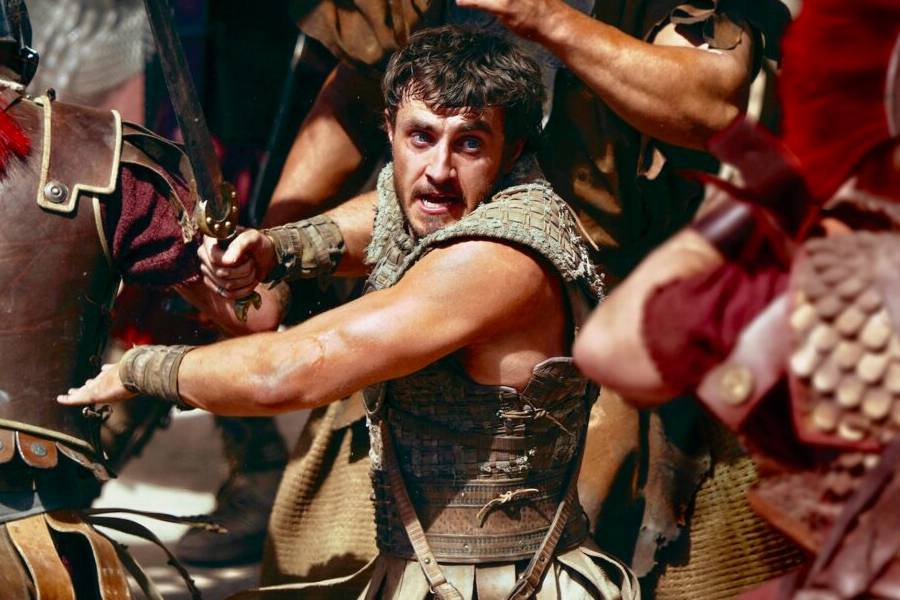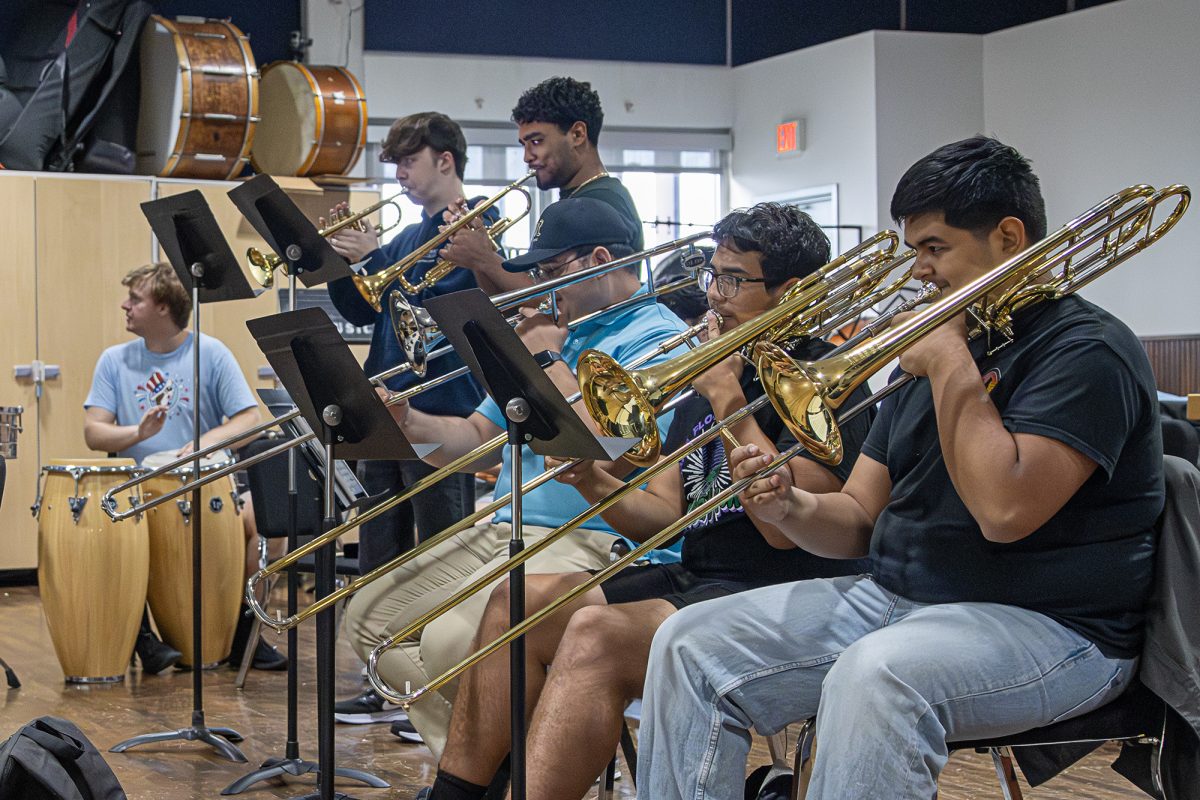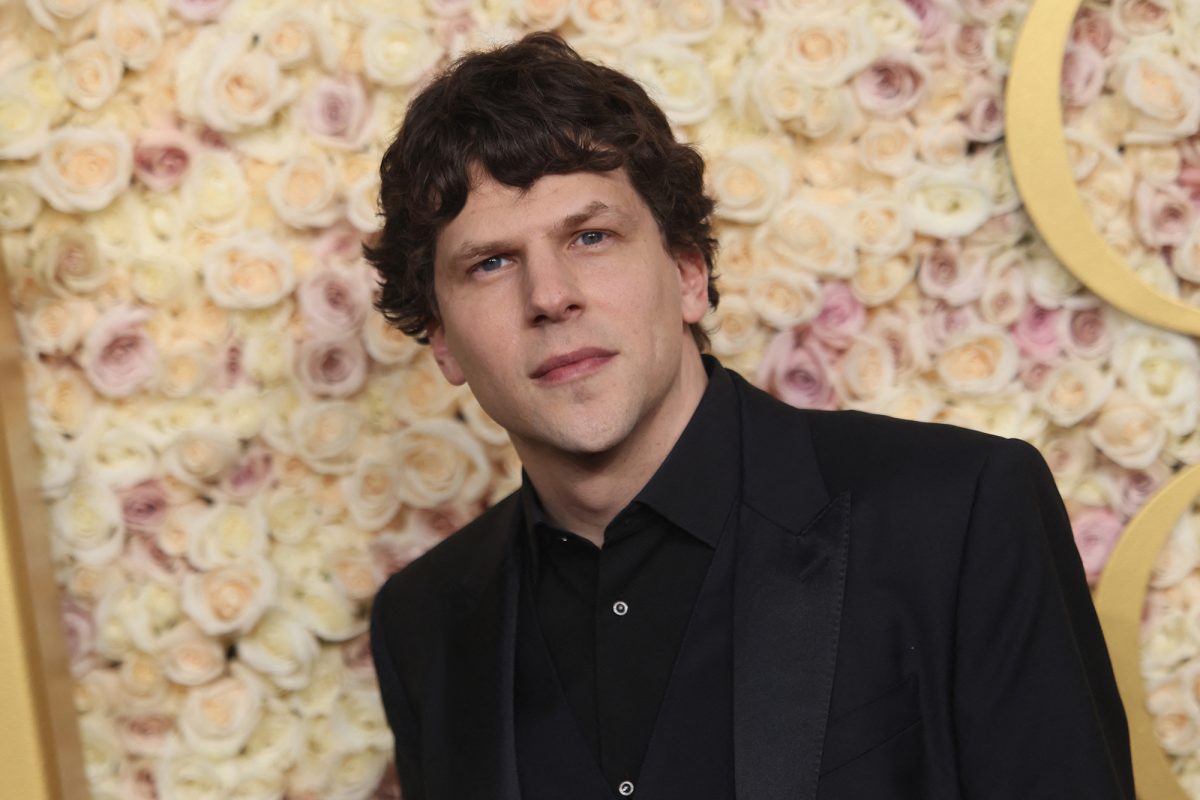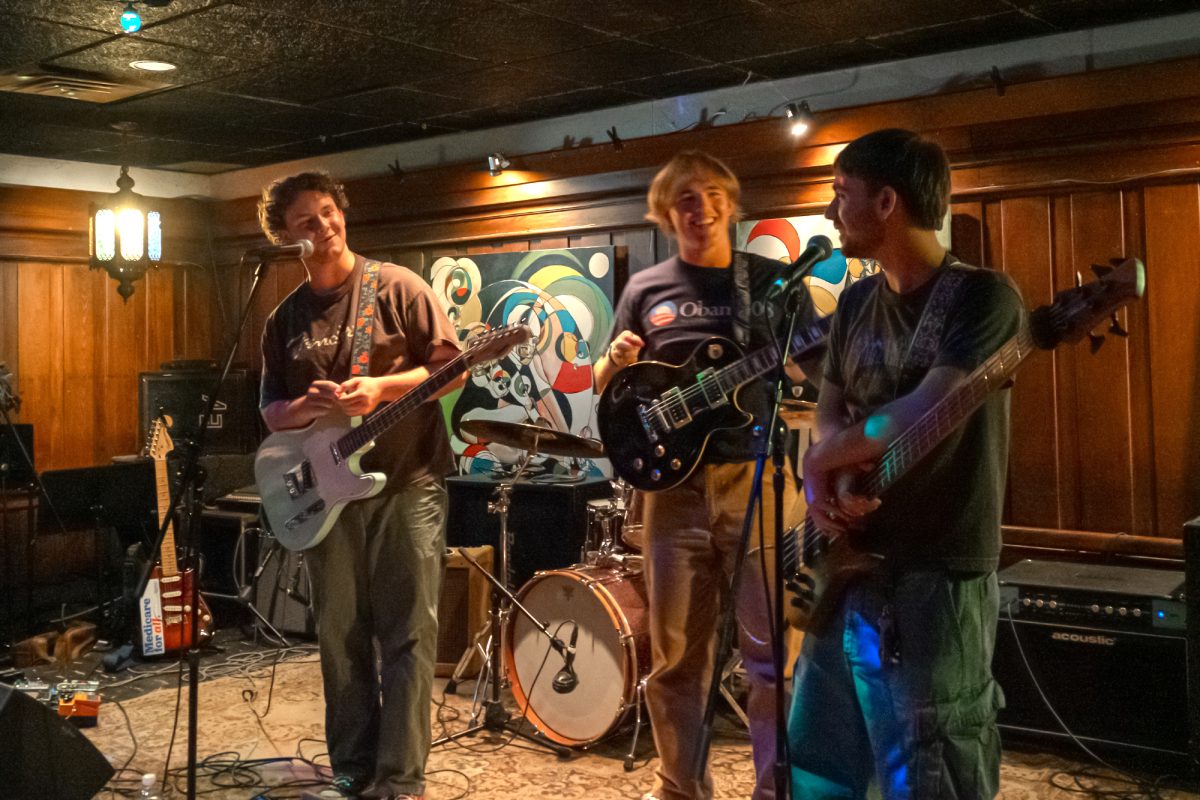“Gladiator II” is the highly-anticipated, 20-years-in-the-making sequel to 2000’s “Gladiator.” Ridley Scott brings the heat with bigger battles, rabid CGI animals and the flawless casting of Denzel Washington as the film’s lead antagonist.
While earlier scripts had Russell Crowe’s Maximus fighting through the underworld to reclaim his life, this sequel includes only a few flashback clips of the original protagonist. Maximus’ bold presence is instead filled by Lucius (Paul Mescal), Lucilla’s (Connie Nielsen) son from the first film. Unlike Maximus, general of the vast Roman army and an established leader from the get-go, Lucius commands his village’s small artillery that tries to fend off the Roman ships. He grows as a leader when he has to start from scratch and gain the respect of his fellow gladiators. Mescal gives a strong performance, revealing sadness behind his stone face. Lucius was the rightful heir to the empire but was exiled from Rome and hunted from city to city until he finally ended up safe in an African oceanside town.
The film opens in this town, where Lucius feeds chickens and tends to a farm while his wife, Arishat (Yuval Gonen), hangs sheets to dry. The two are happy and at peace but suddenly, horns sound, warning of an impending Roman invasion from sea. Led by General Acacius (Pedro Pascal), the Romans swiftly claim the town, killing Arishat in the battle. Lucius is taken as a prisoner of war and bought as a gladiator by Macrinus (Washington). The opening battle is grandiose and bloody; fiery cannonballs fly, arrows ambush and there’s a palpable rising tension as the Roman ships sail closer to shore.
Washington steals the whole movie. Everything from his posture to his outfits to his dialogue is irresistibly captivating. Macrinus is a flamboyantly cunning character, his likable facade concealing darker, power-hungry intentions. It’s reminiscent of Washington’s role as Alonzo in “Training Day.” As the film progresses, Macrinus uses Lucius’ gladiatorial strength to get to Rome and try to pull political strings with senators and the twin emperors, Geta (Joseph Quinn) and Caracalla (Fred Hechinger).
Once his ship docks, Lucius returns to Rome and the plot rushes forward. Lucilla, the only returning character, is reintroduced as the film’s emotional core. She slowly works on regaining Lucius’ trust as his mother and is part of a plot to reinstate Marcus Aurelius’s “Dream of Rome.” Nielsen is fine in the role, but the story doesn’t give her enough time to shine. Geta and Caracalla are clearly out of their depth as emperors, making rash, uncalculated decisions left and right. Quinn and Hechinger each give strong performances but are never menacing like Joaquin Phoenix as their characters are constantly pampered and aren’t calculating.
“Gladiator II” plays it safe by sticking with a similar story structure to its predecessor. The movie sometimes feels a little too familiar, like “Star Wars: The Force Awakens” does to “A New Hope.”
In the third act, however, “Gladiator II” finally stands on its own. Before that, the only key difference was the action, with the first film rapidly cutting around every impact, making it dizzying to witness. The sequel uses many more wide shots — not cutting on every punch — that allows viewers to see gladiators take hits and get thrown into things. The arena brawls also feel more immense as they all feature some sort of vicious animal, whether monkeys, a rhino, or sharks. Although the animal CGI is sometimes repulsive, Scott’s direction caters to this gravitas with each fight growing more monstrous than the next.
As the credits roll, “Gladiator II” ends satisfactorily with an interesting direction for a potential third installment. Not all the performances live up to expectations and the CGI of the sharks and monkeys was video game quality and sub-par, but Washington, Mescal and excellent action sequences keep the film highly engaging. Although it’s not on par with its predecessor, this sequel is just as entertaining.




















